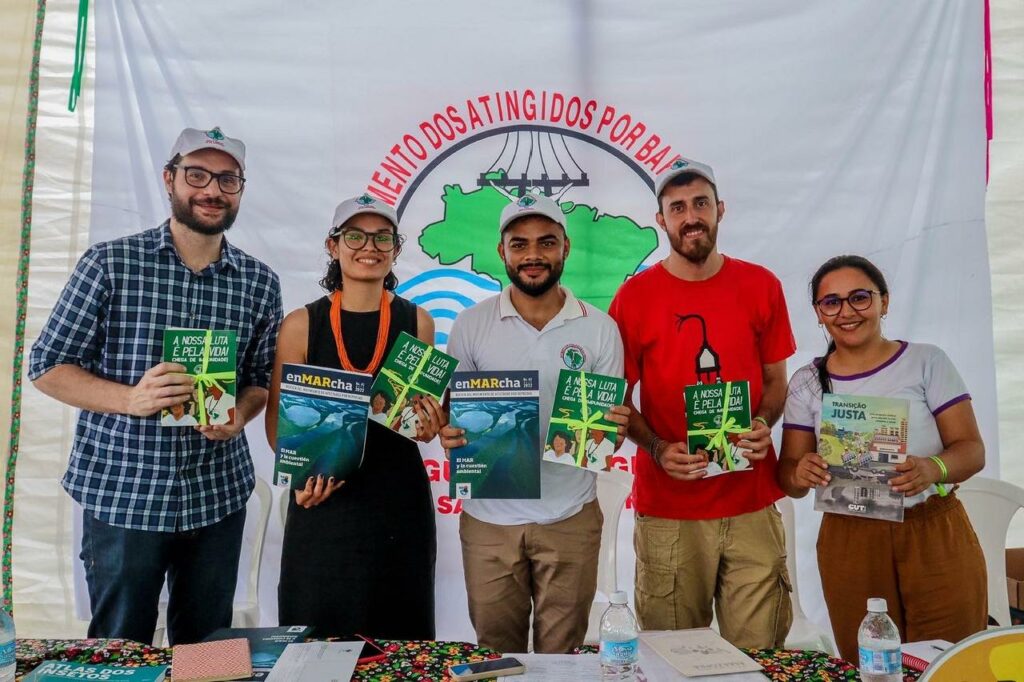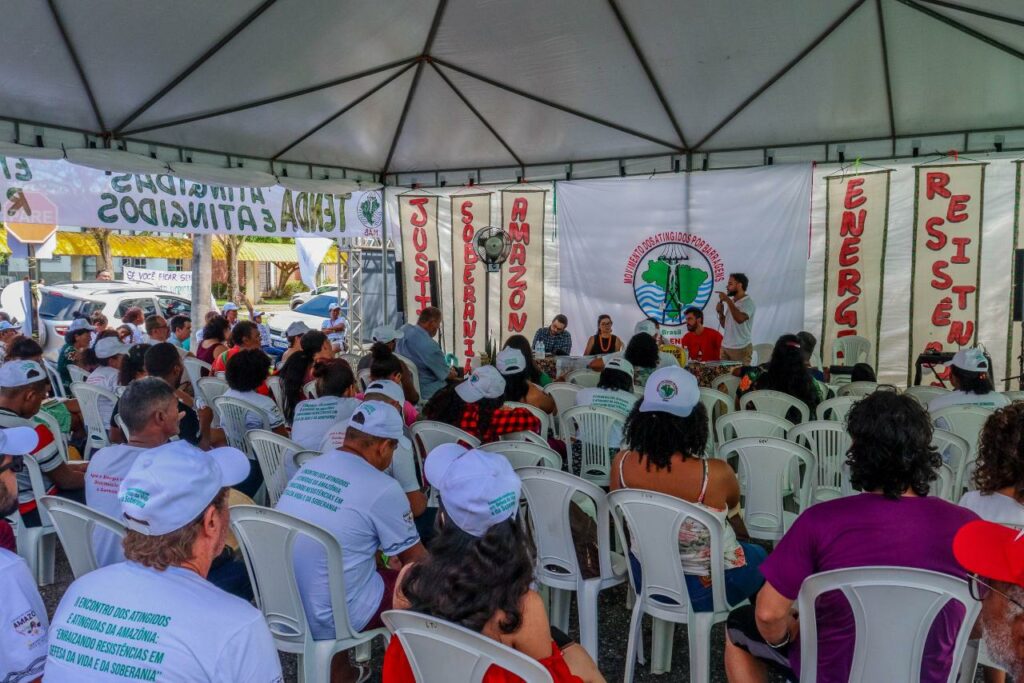Fair, popular and democratic energy projects are debated at MAB’s tent during FOSPA
During 4 days, the event brought together participants from nine countries at the Federal University of Pará to debate the defense of the territory and the rights of the peoples from the Amazon Rainforest
Publicado 08/09/2022 - Atualizado 17/11/2022

Last july 30th, MAB organized a debate on experiences of energy transition in the Amazon during the X Pan-Amazon Social Forum (Fospa), which took place in Belém (PA) from July 28 to 31.
“This sunbath that we are getting here is very strong. It is going to heat this tent and turn it to over forty degrees in the afternoon. The sun that radiates in one day here in Belém do Pará, capital of the resistance, is enough to generate a thousand days of energy that the world needs to survive”, said Francisco Kelvim, a member of the national coordination of MAB, during his speech at the meeting, illustrating the potential of the Amazon for the production of solar energy.
The debate also included the participation of Marcelo Montenegro, from the Heinrich Böll Foundation, Luz Gon, environmental advisor for the Central Labor Union – CUT, and Jordi Besora, from Alianza Contra la Pobreza Energética – an organization in Catalonia (Spain).
Also according to Kelvim, countries need to guarantee the production, generation and distribution of energy to their populations in a fair and sovereign way, because there is a race to dominate the energy sector. “Our rivers, our territories and even our people´s and our communities´ lives are disputed by entrepreneurs who put profit above life”, he highlighted.
The world’s energy matrix is mostly made up of non-renewable sources – fossil fuels such as oil, coal and natural gas still make up a large part of the worldwide used energy. These sources are concentrated in some Latin American countries and are the most significant causes of greenhouse gases emissions in the world. For this reason, Luz Gon defended that the people need to be the protagonists of solutions for the energy transition and guarantee the rights of workers in the sector. “We don’t want a transition at any cost. This is something that we have been discussing within the CUT. So what do we want? We have been discussing a just transition, which needs to be built collectively through dialogue,” said the advisor.
Principles of a popular energy model

In the second edition of the magazine enMARcha, published in May of this year, the Movimiento de Afectados por Represas – MAR presented principles that guide a popular energy model for Brazil, Latin America and the world. The guidelines were established based on a discussion between representatives from nineteen countries, with different economic and social contexts.
The first principle says that energy is a human right and everyone must have guaranteed access to it. “This is a key premise to directly and indirectly satisfy all the needs of the population, because we need to have energy to study, to work, to be healthy. In other words, energy cannot be a commodity”, explains Kelvim.
The second principle is related to energy sustainability, because renewable sources need to be prioritized and adopted by governments. “And it’s not just technology we’re talking about. We are also saying that we can no longer have this number of people affected by dams in Brazil and in the world. And our role is to avoid that this next government allows Brazil’s energy sector to be hijacked by large companies again”, explains Kelvim.
The third principle is the popular appropriation of alternative technologies, as in the case of the project called “Veredas Sol e Lares”, a hybrid power plant (hydroelectric and solar), which is being built with popular participation, in the Jequitinhonha Valley, in Minas Gerais . In a pioneering way, the population will be involved in a field research, in the construction of the plant and in the creation of a social development plan for the territory.
In the Amazon, another reference is the project “Use of Social Technologies to Reduce Deforestation”, implemented in Rondônia, Mato Grosso, Pará and Tocantins. Financed by the Amazon Fund, the initiative enabled the installation and training for the management of solar panels on properties of affected families in these states. In addition, the project allowed the reforestation of the areas benefited by the planting of fifty-six thousand tree seedlings.
In his speech, Marcelo Montenegro, coordinator of the socio-environmental justice area at the Heinrich Böll Foundation, presented new sources of renewable energy, such as green hydrogen. He explained that in the state of Ceará, for example, there are already at least 18 projects studying the implementation of this alternative. “In the medium and long term, there is a need to diversify the matrix and seek cleaner energy sources, and hydrogen can contribute to this transition”, he defended. Marcelo pointed out that – as this is a new alternative – there is the possibility of democratically discussing its implementation from the beginning. “What are the needs and conditions for this to happen without having an impact on those who live, on the people of the territory?”, asked the leader.
Altogether, Fospa brought together more than five thousand people, including indigenous people, quilombolas, riverine people, peasants and members of different social movements to discuss economic, social and environmental issues related to the Amazon region.

